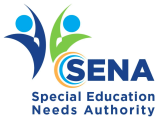Quality Assurance Framework for Special Education Needs Schools launched the Quality Assurance Framework for Special Education Needs (SEN) Schools, whose main objective is the improvement of education practices and sustainment of quality education in SEN institutions through the implementation of a set of international norms and standards, was launched, this morning, at the Word Hindi Secretariat in Phoenix.
The Vice-Prime Minister, Minister of Education, Tertiary Education, Science and Technology, Mrs Leela Devi Dookun-Luchoomun; the Director of the Special Education Needs Authority (SENA), Mr Deewakarsingh Authelsingh; and other personalities were present at the event.
The Framework aims, among others, at upholding children’s rights and ensuring that SEN schools meet SENA’s norms and standards. The document is not only in accordance with the articles of the United Nations Convention on the Rights of the Child, and the United Nations Convention on the Rights of Persons with Disabilities, but also meets the requirements of the Education Act and the SENA Act.
Moreover, the Quality Assurance Framework outlines key tasks and results areas, performance indicators as well as level descriptors pertaining to seven domains that will be used to assess and evaluate the overall efficiency and effectiveness of both public and private SEN schools. These domains are Governance and leadership; Learning and teaching; School ethos and climate; Holistic development of children; School infrastructure and sanitation; Parental Engagement; and Food and nutrition.
In her address for the occasion, the Vice-Prime Minister highlighted the value addition brought by the dynamic process of quality assurance in maintaining high standards in education provision. She cited supporting the establishment and embedding of quality culture, and the resolution of quality-related problems as benefits of implementing the quality framework in SEN schools.
According to Mrs Dookun-Luchoomun, through the framework, institutions and staff would engage in a continuous process of self-reflection, self-assessment and improvement to achieve the best quality education for children, while children with disabilities and their families would receive the right services at the right time. She thus urged SEN Managers to apply their leadership skill for the materialisation of a culture of continuous improvement in their respective institutions.


















